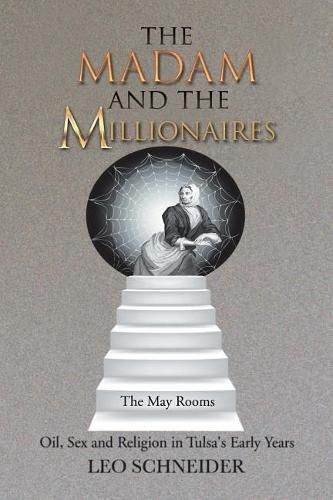Readings Newsletter
Become a Readings Member to make your shopping experience even easier.
Sign in or sign up for free!
You’re not far away from qualifying for FREE standard shipping within Australia
You’ve qualified for FREE standard shipping within Australia
The cart is loading…






This title is printed to order. This book may have been self-published. If so, we cannot guarantee the quality of the content. In the main most books will have gone through the editing process however some may not. We therefore suggest that you be aware of this before ordering this book. If in doubt check either the author or publisher’s details as we are unable to accept any returns unless they are faulty. Please contact us if you have any questions.
Pauline Lambert was born Clarey Gillion on a Tennessee cotton farm and subsequently lived a dizzying variety of lives–Sunday school teacher, wife to first a coal miner and later a hard-luck alcoholic, mother of two sons, rooming-house operator, and madam of Tulsa’s longest-lasting brothel. How these experiences suited Pauline for her final unlikely role as assistant to St. Peter in screening applicants for admission into heaven is the subject of this book.
When Pauline arrived at heaven’s waiting room, she was only one of billions who, owing to of St. Peter’s antiquated bookkeeping, had clogged the admissions process. After a long, heavenly negotiation, Pauline was appointed as one of two committee persons to streamline the procedure using modern techniques of digital data entry, storage, retrieval, and evaluation. Heaven’s residents and administrators were rightfully surprised at Pauline’s appointment until it was explained that half the applicants were women. Sexual relationships were common sources of sin, and her wide experiences would provide unusual insight. Her fellow committeeman, Henry Vernon Foster, was her polar opposite–a rich, educated white male and privileged Quaker who had made his fortune in the Osage oil fields. How well they worked together is a testimony to the similarities between human beings.
The action is focused around two aspects of Tulsa’s early history–the oil boom kicked off by the Glenn Pool discovery and the Tulsa race riot. The lives of early-day millionaires and significant actors in the riot were scrutinized in a series of interviews whose results are not revealed. The modern dispute of whether redemption should be exclusive (restricting admission to the selected few) or inclusive (more widespread admission) is investigated.
$9.00 standard shipping within Australia
FREE standard shipping within Australia for orders over $100.00
Express & International shipping calculated at checkout
This title is printed to order. This book may have been self-published. If so, we cannot guarantee the quality of the content. In the main most books will have gone through the editing process however some may not. We therefore suggest that you be aware of this before ordering this book. If in doubt check either the author or publisher’s details as we are unable to accept any returns unless they are faulty. Please contact us if you have any questions.
Pauline Lambert was born Clarey Gillion on a Tennessee cotton farm and subsequently lived a dizzying variety of lives–Sunday school teacher, wife to first a coal miner and later a hard-luck alcoholic, mother of two sons, rooming-house operator, and madam of Tulsa’s longest-lasting brothel. How these experiences suited Pauline for her final unlikely role as assistant to St. Peter in screening applicants for admission into heaven is the subject of this book.
When Pauline arrived at heaven’s waiting room, she was only one of billions who, owing to of St. Peter’s antiquated bookkeeping, had clogged the admissions process. After a long, heavenly negotiation, Pauline was appointed as one of two committee persons to streamline the procedure using modern techniques of digital data entry, storage, retrieval, and evaluation. Heaven’s residents and administrators were rightfully surprised at Pauline’s appointment until it was explained that half the applicants were women. Sexual relationships were common sources of sin, and her wide experiences would provide unusual insight. Her fellow committeeman, Henry Vernon Foster, was her polar opposite–a rich, educated white male and privileged Quaker who had made his fortune in the Osage oil fields. How well they worked together is a testimony to the similarities between human beings.
The action is focused around two aspects of Tulsa’s early history–the oil boom kicked off by the Glenn Pool discovery and the Tulsa race riot. The lives of early-day millionaires and significant actors in the riot were scrutinized in a series of interviews whose results are not revealed. The modern dispute of whether redemption should be exclusive (restricting admission to the selected few) or inclusive (more widespread admission) is investigated.